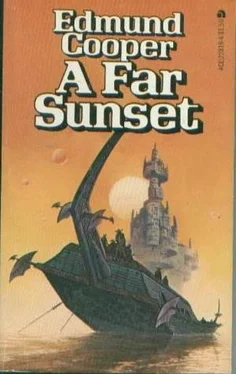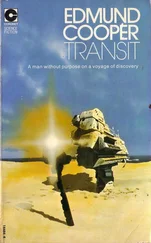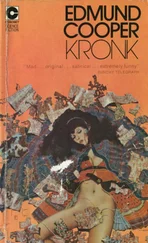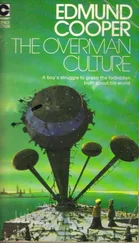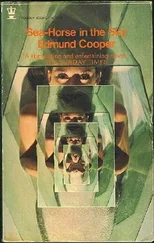‘From me, there is nothing for you to fear,’ he said softly.
‘Truly, I will unsee what I have seen … But, my daughter, where will you go?’
She pointed to the dark green rim of the forest. ‘There, my father, is no sin and no punishment. It is where I and my child will live or die.’
‘I hope, then, that you will live,’ he managed to say.
The woman rose to her feet, and smiled. ‘Pray for me,’ she said simply. ‘I have much need of it.’ She turned away.
As in a trance, Paul Marlowe watched her walk purposefully towards the line of trees and shrubs that swayed in the cool breeze like an emerald sea.
Faindy, the voices of the singers in the kappa fields came to him: ‘The day is short, the night is long.’
After a long day spent in stretching and drying the largest kappa leaves he could find, until they became tough and durable like parchment, Paul Marlowe—feeling oddly, now, more like Poul Mer Lo—occupied his favourite position on the verandah step of his small thatched house. Inside the house, Mylai Tui was cooling kappa spirit by patiently dipping the earthenware jar in a large pitcher of water and allowing the water on the jar to evaporate. Presently, she would bring him a brimming calabash. Presently, he would get drunk.
It was seventeen days since Enka Ne the 609th had returned to the bosom of Oruri. As the sun swung low on the western horizon, Paul Marlowe allowed his gaze to drift across the serene stretch of water that was called the Mirror of Oruri towards the sacred city and the lofty Temple of the Weeping Sun.
He had not been present at the ceremony. Only those of high rank were permitted to be present on such solemn occasions. But Shah Shan had described the ritual to him on his last visit, three days before the event. It was attended, apparently, with all the pomp and ceremony of an ancient terrestrial coronation—with horrific variations.
A coronation in reverse. For as Enka Ne approached the stone phallus against which he would lean joyfully while the living heart was tom from his chest, he would be stripped of all his regalia until nothing remained to be despatched to the bosom of Oruri but Shah Shan, a Bayani waterman with a fine brain and an excellent command of English.
As soon as the blow had been struck and the beating heart removed—to the accompaniment of a great cry of joy from all present—the body would be allowed to fall to the base of the phallus. And then there would be the answering call—a single desolate bird cry; and Enka Ne the 610th would strut from behind the phallus, a bird covered in brilliant plumage, with iridescent feathers of blue and red and green and gold, and with brilliant yellow eyes and a hooked black beak.
The king is dead. Long live the king!
Thus would the enduring glory of Oruri have been reaffirmed.
Paul Marlowe gazed across the water at the Temple of the Weeping Sun. And tears ran down his cheeks, unheeded.
Mylai Tui brought the calabash, full of cooled spirit.
‘Thank you, my love,’ said Paul in English.
‘Think nothing of it,’ said Mylai Tui dutifully. It was a phrase she had learned most carefully. She sat patiently, waiting for the further commands of her lord.
Paul took a deep draught of the kappa spirit. Fire coursed through his veins. But his head remained cool and empty.
He was thinking of what Shah Shan had said to him at their last meeting.
‘You must not be sad, Paul,’ he had said. ‘You do not yet understand the ways of my people. But you must not be sad. It may be that Enka Ne will think of you when he is called. It may be that he will wish to send you some small token for the kindness and patience you have shown to an insignificant waterman.’
Sure enough, on the day of the sacrifice, a black Bayani of the god-king’s personal guard had brought him one hundred and twenty-eight copper rings and one long green feather from the plumage of Enka Ne. Paul had been about to ask him if Enka Ne had sent any message, when the great cry of sacrifice drifted across the water from the Temple of the Weeping Sun. A look of intense happiness had come over the face of the small Bayani warrior. Without a word, he had reversed his short trident and, with a tremendous thrust, plunged it into his own throat. The death was spectacular and messy, but it was also almost instantaneous.
Paul Marlowe took another drink from the calabash and gazed at Mylai Tui.
‘Do you remember a bright lad by the name of Shah Shan,’ he said in English thickly, ‘a youngster whose eyes were full of fire and whose brain was full of nine million nine hundred and ninety-nine thousand question marks?’
‘I do not understand, lord,’ answered Mylai Tui in Bayani. She was accustomed to his increasing use of the strange tongue, but rarely accustomed to his meaning.
‘Say Paul, blast you.’
‘I am sorry, Paul,’ she said in English. ‘You speak too quickly.’
He switched to Bayani. ‘Do you remember Shah Shan—the first time he came to this house?’
‘Yes, lord,’ she answered in Bayani. ‘I remember the first visit of Shah Shan. He was very thin, very hungry.’
Paul took another drink. ‘He had bright, searching eyes. He had the gift of greatness … I am sad that he will come no more.’
‘Lord,’ said Mylai Tui simply, ‘I rejoice, having seen the visage of a god upon the face of a man.’
‘The god is now dead,’ said Paul grimly.
‘No, lord, the man is now dead. The god lives. So it has always been. So it will always be.’
‘World without end,’ he mocked, raising the calabash to his lips. For some time, now, his relationship with Mylai Tui had been strained. Thinking back, he decided that it had begun to show signs of strain when Shah Shan started to come regularly for his English lessons. Until that time, Paul Marlowe, native of Earth had done his best—despite lapses—to become Poul Mer Lo of Baya Nor. He had been very reliant on Mylai Tui and had tried to draw close to her and understand her way of looking at things.
But then Shah Shan with his quick mind and natural curiosity had met him on his own ground and, learning not only the language but the ways of the land on the other side of the sky, had encouraged Paul to remember with some pride that he was a twenty-first century European. Shah Shan had learned F.nglisb far faster and much more fluendy than Mylai Tui. By skilfully stimulating his teacher, he had precipitated Paul into journeying back through space and time to his own world. Shah Shan had a flair for grasping intuitively. With remarkably few words, Paul could create a scene for him— whether in a London street or on a rocket launching pad or on an East Anglian farm—that was both vivid and immediate. Under a joint spell of perception, they could together travel far and recreate much, while Mylai Tui was left hopelessly behind—lost in a welter of complex and meaningless words.
It was then Paul had discovered that, despite her discipline and training as a noia in the Temple of Gaiety, she was inclined to be jealous and possessive. She wanted the stranger for herself. At first her possessiveness amused him . Then it began to annoy him .
Oddly enough, Mylai Tui had displayed another aspect of her strange temper for the first time a few days before Enka Ne—or Shah Shan—was due to die. It had been caused by the incident Paul had witnessed on the morning he had walked along the Canal of Life to sit down and stare idly at the toilers in the kappa fields.
Although he had promised the woman who had given birth to her baby on the other side of the mound where he was sitting that would ‘unsee what he had seen’, he had taken the promise literally only insofar as not mentioning the place or the time to anyone. He would not betray her, but neither would he attempt in the literal sense to unsee what he had seen. It was, perhaps, his most important discovery in Baya Nor.
Читать дальше
